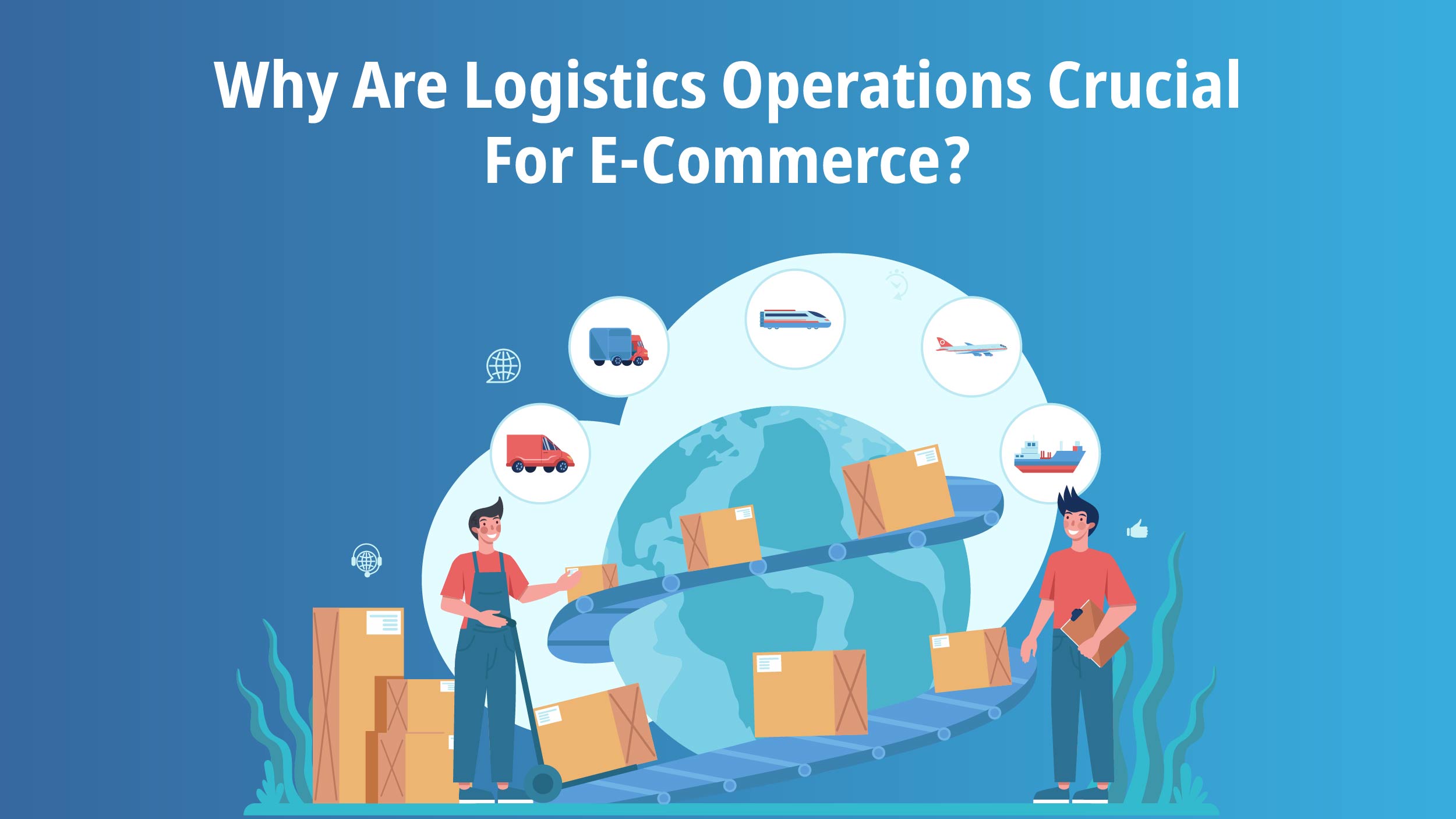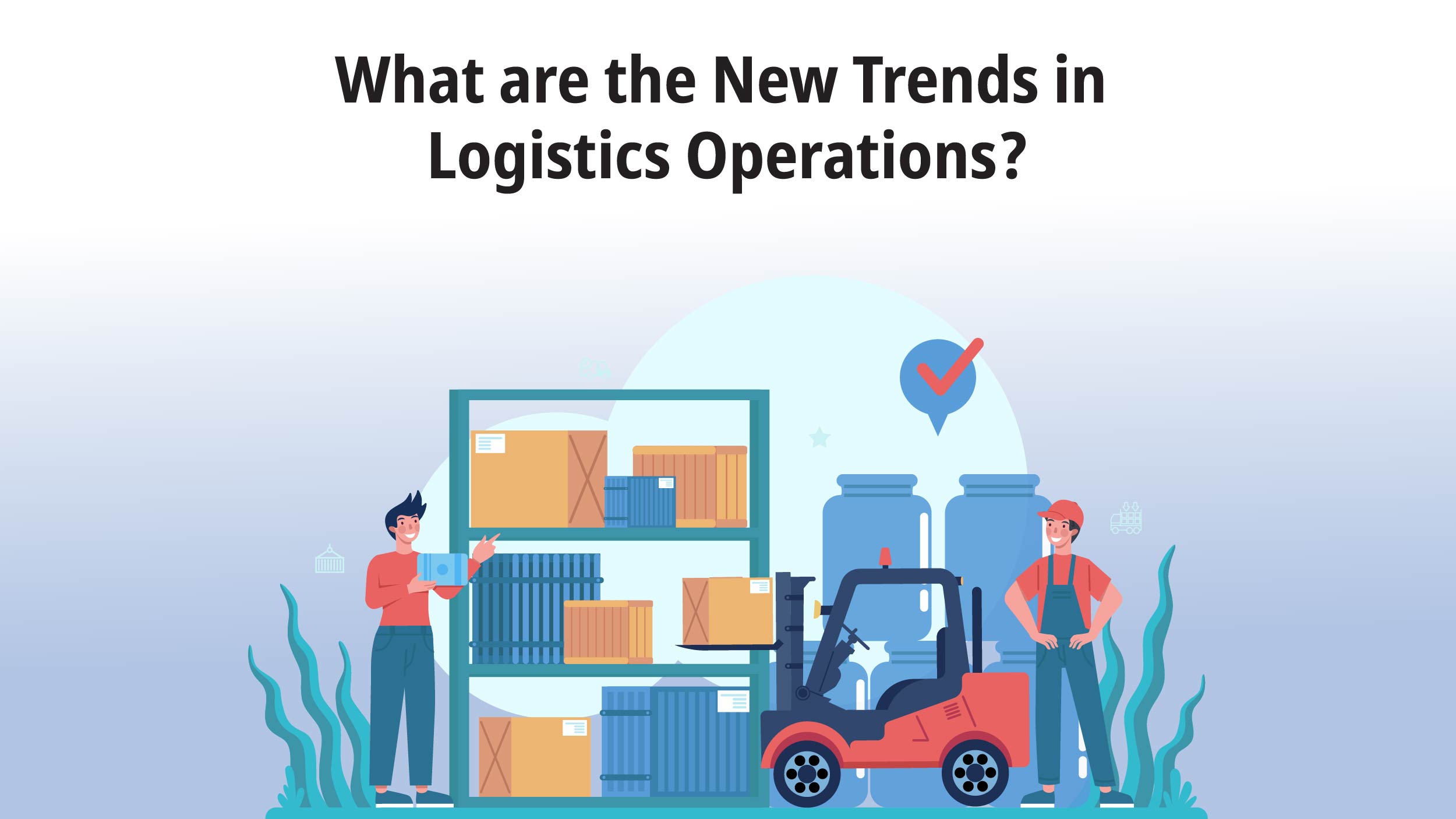The success of an e-commerce business heavily relies on the efficiency of its logistics operations. A well-structured and optimized logistics strategy is crucial for meeting customer demands and driving sales. In this article, we will explore the key steps to improve your e-commerce logistics operations and optimize your retail supply chain, ensuring the delivery of high-quality products to your valued customers.
What are Logistic Operations?
Logistics operations are defined as the management of the flow of goods from the point of origin to the point of consumption in order to meet customer requirements. It involves planning, implementing, and controlling the movement of goods. These play a critical role in the success of any business, especially in today’s fast-paced and globalized economy.
Advantages of Logistics Operations
Logistics operations offer several advantages for businesses:
- Enhanced Efficiency: Logistic operations streamline processes, eliminate bottlenecks, and optimize resource allocation, resulting in improved productivity and reduced operational costs.
- Improved Customer Satisfaction: By ensuring timely deliveries, accurate order fulfillment, and effective communication, logistic operations help businesses meet customer expectations, leading to increased customer loyalty and a positive brand reputation.
- Cost Reduction: Efficient inventory management, optimized transportation routes, and effective warehouse utilization minimize unnecessary expenses, leading to significant cost savings.
- Competitive Advantage: Implementing logistic operations gives businesses a competitive edge by enabling them to respond quickly to market changes, adapt to customer demands, and stay ahead of the competition.
Logistics Vs Operations
Logistics involves overseeing the flow of goods and services both within and between organizations, covering activities such as procurement, movement, and resource allocation. Operations management, on the other hand, concentrates on internal processes within a company, emphasizing production efficiency and the conversion of inputs into outputs. While logistics primarily deals with the movement and storage of goods, operations management encompasses a wider range of activities, including production, service delivery, and resource optimization.
Also Read : Transportation Logistics: The Definitive Guide
Why Are Logistics Operations Crucial For E-Commerce?

Efficient logistics operations are integral to the success of e-commerce businesses. The e-commerce supply chain is multifaceted, and effective management is essential to avoid potential pitfalls. Inadequate inventory management, for instance, can result in excess inventory leading to deadstock and high carrying costs, or insufficient inventory resulting in stockouts and shipping delays. These challenges can significantly impact both profitability and customer satisfaction.
Implementing streamlined logistics operations is imperative to address these issues. By establishing cost-effective and efficient processes, e-commerce businesses can minimize logistics costs, mitigate risks, reduce human errors, and ultimately ensure customer satisfaction.
4 Key Processes Of Logistics Operations
Logistics operations encompass a series of interconnected processes aimed at optimizing the supply chain, spanning from manufacturing to last-mile delivery.
Suppliers And Manufacturers
In the initial stage of supply chain management, securing raw materials is pivotal, typically handled by manufacturers or suppliers. A reliable manufacturer ensures smooth tracking of the work-in-process inventory phase, ensuring timely delivery of high-quality finished goods at competitive prices. The selection of a dependable supplier is critical, as inconsistency in product quality or inventory shipment can impede operations from the outset.
Distributed Fulfillment Centers
Fulfillment centers, strategically positioned near end customers, expedite order processing and delivery. Many direct-to-consumer (DTC) brands rely on third-party logistics companies for e-commerce fulfillment services, streamlining order fulfillment and shipping processes.
Warehousing
Warehousing constitutes a fundamental aspect of logistics operations, involving the storage and management of physical goods prior to sale. Effective warehouse management encompasses various elements, including the safety and security of stored goods, inventory control processes, and tracking systems to monitor item location and duration of storage.
Shipping
Efficient shipping processes are crucial for timely and accurate order fulfillment. While carriers are responsible for the final execution of shipping orders, businesses can influence shipping methods and destinations offered to customers. Options range from standard ground shipping to expedited air shipping, with considerations for domestic and international deliveries. Businesses may opt for in-house shipping or outsource fulfillment to providers offering discounted shipping rates and comprehensive logistics support.
What are the New Trends in Logistics Operations?

There are several new trends in logistics that businesses should be aware of. These include:
- Technology Integration: The incorporation of cutting-edge technologies like artificial intelligence, the Internet of Things (IoT), and automation is transforming logistics operations. This integration facilitates real-time tracking, predictive analytics, and autonomous processes, leading to enhanced efficiency and agility in the logistics industry.
- Sustainability: With increasing environmental concerns, businesses are adopting eco-friendly practices in their logistic operations, including optimizing transportation routes, reducing carbon emissions, and implementing green packaging solutions.
- Collaboration and Outsourcing: Collaborative partnerships and outsourcing logistics functions to specialized third-party providers are gaining popularity, allowing businesses to focus on their core competencies while leveraging the expertise of logistics professionals.
Final Takeaway
Logistics operations are critical to the success of any business. They offer numerous advantages, including increased efficiency, improved customer satisfaction, reduced inventory costs, and increased profitability. Businesses can improve their operations by implementing logistics operations, using technology, partnering with logistics companies, implementing lean principles, and focusing on continuous improvement. There are several new trends and future opportunities in logistics operations that businesses should be aware of, including big data, automation, sustainability, blockchain, artificial intelligence, augmented reality, drones, and 3D printing. By staying up-to-date with these trends and opportunities, businesses can improve their logistics operations and gain a competitive advantage in the marketplace.






